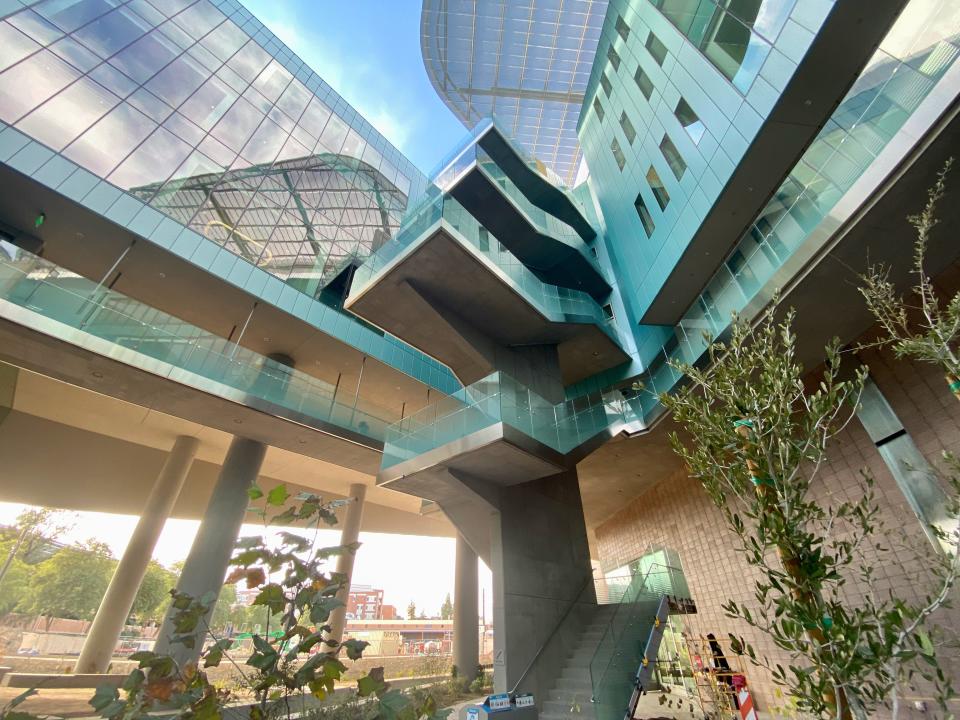ASU, Phoenix, others will share $15 million to develop climate, sustainability solutions
A collection of Southwest-based research institutions, cities and business partners led by Arizona State University is one of 10 teams nationwide that will use science and technology to find economically competitive solutions to regional challenges as part of the National Science Foundation's new "innovation engines" program, the agency announced Monday.
The Southwest Sustainability Innovation Engine will receive $15 million in federal funding over two years, with more available from matching donors and in future funding cycles, to "deploy new solutions to extreme regional dryness and heat, enabling equitable water and energy access," according to a briefing Monday by the White House.
A joint news release sent Tuesday from the offices of Democratic Reps. Greg Stanton, Ruben Gallego and Sen. Mark Kelly further specified that the team will "address the threat climate change and water scarcity pose to economic and population growth in the Southwest."
The awards were created and funded under the CHIPS and Science Act, which was signed into law by President Joe Biden on Aug. 9, 2022, just a week before he signed the historic climate legislation known as the Inflation Reduction Act. Kelly was a lead negotiator of the CHIPS Act and, following its passage, Stanton wrote a letter signed by his colleagues representing Arizona in Washington, D.C., requesting funding for the ASU-led engine.
“Our CHIPS and Science Act is turbocharging innovation here in the Valley, not just in advanced manufacturing, but in addressing the existential threat of climate change and drought,” Stanton said in a statement.
Sustainable spending? Or 'sustainobabble'? A new group of experts will try to sort it out
Other regional "engines" funded with the same amount will concentrate on concerns specific to those areas, such as accelerating energy storage in upstate New York, advancing semiconductor technology in central Florida, revolutionizing the textile industry in North Carolina, reinventing how to feed the nation in North Dakota and predicting wildfires and carbon capture in Colorado and Wyoming.
For the Southwest project, ASU will partner with Phoenix, Maricopa Community Colleges, the utility company APS, Starbucks and regional collaborators including the University of Nevada, Las Vegas, the University of Utah, Salt Lake City, the Utah Rivers Council and Harmons Grocer. These entities will work toward an integrated approach to sustainability information, translate that knowledge for use in widespread industries and address related workforce gaps with entrepreneurship and skills programs inclusive of underserved populations.
Bringing trees back to AZ: Big data and a money tree: How Phoenix decides where to create more shade
Details on how those goals will be accomplished or how each of the partners will contribute have not yet been specified. But Phoenix Mayor Kate Gallego shared enthusiasm for the innovation engine and how its targets align with her sustainability aims for the city.
“As Phoenix continues to make progress on its goal of becoming the most sustainable desert city in the world, I am looking forward to working with Arizona State University and the engine to test and scale new technologies that will help us adapt to urban heat, conserve water for the entire region, and cut back on our carbon emissions,” Gallego told The Republic.
Diane Pataki, a professor in ASU's School of Sustainability, was the first to share her excitement about the Southwest Sustainability Innovation Engine with The Republic on Monday. Before joining the faculty at ASU, Pataki was a professor and dean at the University of Utah, so the new project pulls together collaborators from her own research history. She has been working closely with Peter Schlosser, vice provost of ASU's Julie Ann Wrigley Global Futures Laboratory and the sustainability expert who will lead ASU in the innovation engine, to plan and coordinate the effort.
"For me, this NSF program offered an opportunity to help fulfill our region’s potential to become the national and international leader in technology, workforce, and policy-based climate resilience," Pataki told The Republic. "We have all the pieces in place here in the Southwest to find the most innovative solutions to water and climate sustainability — they just need to be integrated and coordinated across the many organizations and projects with ambitious sustainability goals."
Read our climate series: The latest from Joan Meiners at azcentral, a column on climate change
She views the project as putting ASU's sustainability aims into practice at a large scale by “assuming the fundamental responsibility for the economic, social, cultural, and overall health of the communities it serves.”
Residents of the Southwest will feel the benefits of this federal investment and regional collaboration not only in the long-term as eventual relief from escalating heat and drought, but soon, she expects, through the workforce development and green jobs training programs the engine has planned across Arizona, Utah and Nevada.

Joan Meiners is the climate news and storytelling reporter at The Arizona Republic and azcentral.com. Before becoming a journalist, she completed a doctorate in ecology. Follow Joan on Twitter at @beecycles or email her at joan.meiners@arizonarepublic.com. Read more of her coverage at environment.azcentral.com.
Sign up for AZ Climate, The Republic's weekly climate and environment newsletter.
Support climate coverage and local journalism by subscribing to azcentral.com at this link.
This article originally appeared on Arizona Republic: ASU, Phoenix, others to partner on sustainability innovation

